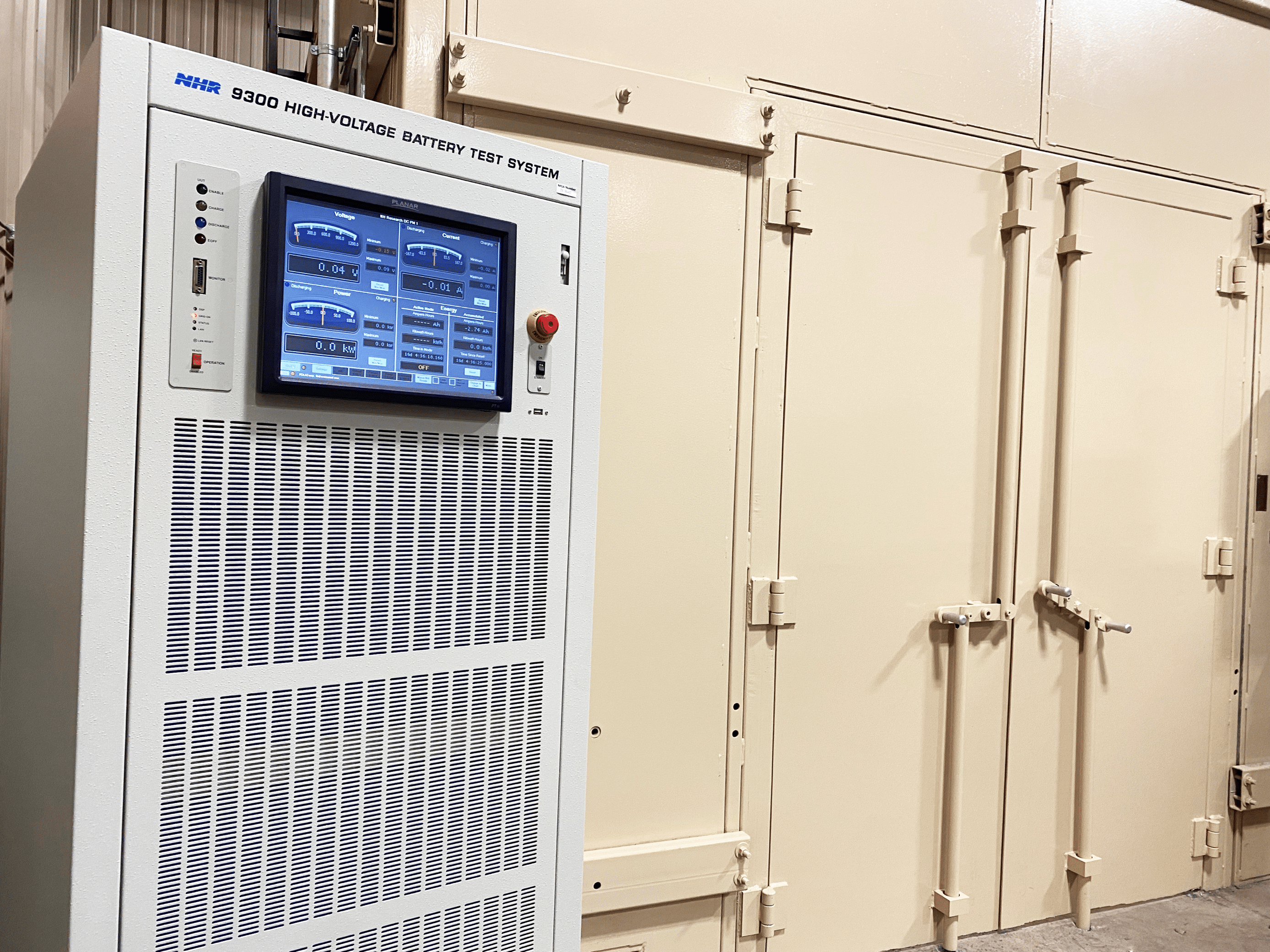With electric vehicles becoming more prominent in today’s market, battery technology has grown tremendously over the past several years. This advancement in battery technology means that charging systems must also evolve in order to charge these batteries quicker and more efficiently. Because these systems' reliability is imperative in the EV industry, MGA Research has recently expanded its capabilities to accommodate the environmental as well as lifecycle testing that is required.
While charging systems may be tested at ambient conditions, many of these units will see harsh environments including rain, snow, salt, and extreme heat. At MGA, we are experienced with running high voltage and current charging systems in a wide variety of environmental chambers that can simulate these conditions. When electrical components are exposed to extreme temperatures they are often adversely affected. With our ability to record up to 120 thermocouples at once, we can pinpoint problematic components in a system. These tests are a crucial part to validating the longevity of an EV charging system.
Many of these charging systems have a target lifespan of five or more years. To help ensure the products meet these demands, we simulate this lifespan using the environmental chambers in conjunction with battery charging cycles. By performing charging cycles that include extreme temperature conditions (-40⁰C and up to 80⁰C) it helps to accelerate the degradation of the system and give insight to the overall long-term performance of the chargers. Since the purpose of the testing is to evaluate the charger system, we will use “battery emulators” to eliminate the need for an actual high voltage battery pack or vehicle. This allows us to perform the power cycles at a faster and more abusive rate than what an actual battery pack would normally see.

NHR 9300 High Voltage Battery Test System - Used for battery emulation
EV charging systems are a critical component to the ongoing development of the electric vehicle industry. With EVs becoming more accessible around the world, the systems that power them must be as reliable and efficient as the vehicles themselves. We are excited to offer these forms of testing and remain committed to expanding our capabilities alongside the ever-growing needs of our customers.

